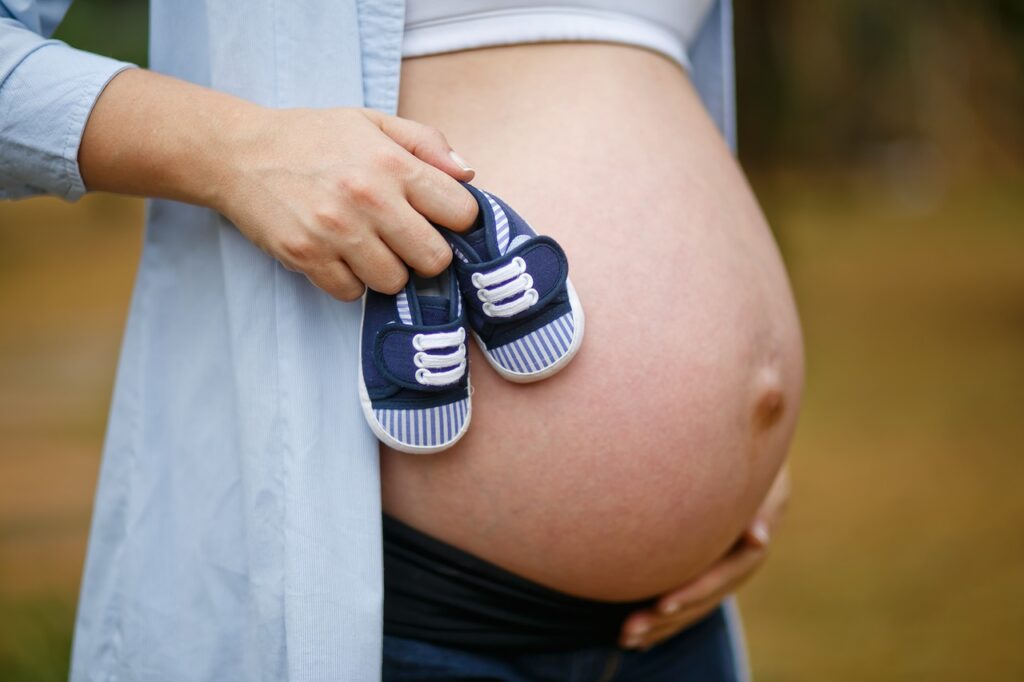R0.00

Congratulations you’re pregnant! You are about to embark on one of the biggest adventures of your life. Being informed about what is happening to you and your baby is hugely empowering, so it’s great that you’re reading this article. Read on for tips, advice and some fascinating facts about your unborn baby’s development. This information will help you have a healthy first trimester.
The “first 1000 days” – a term for the period from conception to roughly the second year of life – is seen as a critical time for your baby’s development, explains Michelle Van Der Westhuizen, a registered nurse and midwife who practices in Port Elizabeth. Knowing what to do and what to avoid will lay down a good foundation for your baby’s future health and help them to reach their full potential.

Trying to Conceive?
Better yet, Michelle says that healthy lifestyle adjustments should ideally be made before you conceive; “I would love parents who plan to conceive to start on a folic acid supplement 3 months before conception. I would also encourage moms to already focus on healthy eating, exercise and avoiding recreational drugs. Some research would suggest a similar scenario for the dad-to-be… It will certainly help with fertility.” Once you’re pregnant, continuing to take the folic acid supplements will help you have a healthy first trimester.

A Positive Result
But what do you do when you find out you’re pregnant? The chances are you found this out after taking a home urine test. As soon as this happens, Michelle recommends you schedule a blood test with your GP or gynae to confirm the pregnancy. She says, “Many moms also want to have an early sonar to see their baby’s heartbeat. From six weeks (but depending on the technology available in the area) the heartbeat can be seen, providing mom with the comfort that all is well. A blighted ovum, empty sac or molar pregnancy can be ruled out in this manner. Once a heartbeat is seen, your chances of miscarriage decrease drastically and continue to decrease with each passing week.

So… What Now?
Maintaining moms and baby’s health should become a priority once a pregnancy is confirmed. As best as possible Michelle advises you do the following:
- Eat a healthy balanced diet with three good meals, two good snacks and a good water intake daily. Rooibos tea is also a healthy drink for pregnant moms.
- Avoid raw foods like sushi or undercooked meat, and unpasteurized milk and cheeses. Deli meats carry a risk of listeriosis, so should also be avoided. Soft cheeses like brie and camembert carry bacteria which could be harmful to a growing baby.
- Any seafood that is high in mercury, such as tuna, should be limited to no more than one serving a week.
- High levels of Vitamin A are known to cause birth defects, so stick to the recommended dosage of pregnancy vitamin supplements to be safe.
- All alcohol consumption should stop, and caffeine should be limited to no more than two cups of coffee daily. Remember tea and sodas also contain caffeine so drink these in moderation.
- Many over the counter medications are no longer safe, including cold, flu and sinus congestion medications. Paracetamol is your best option for any ills while you are pregnant. Before taking anything, check with your GP or pharmacist first.
- If you struggled with infertility prior to your pregnancy, your gynae may monitor your levels of the hormone progesterone, and possibly prescribe a supplement for you to help you maintain a healthy pregnancy.
- Harmful x-rays are also believed to be harmful for the foetus, so should be avoided.
- Moderate exercise, a healthy amount of fresh air and a bit of sunshine are beneficial. Try to get enough rest and minimize the stressors in your life. Remember to check with your doctor before you exercise.
- Lastly, Michelle says; “A good child birth education class should seal the deal for a healthy early pregnancy!” These classes are invaluable for teaching you about your pregnancy, your birth options, and caring for your newborn. Many moms do not realize how much they stand to gain until they attend one. Start early for a healthy first trimester.

The Side Effects During The First Trimester
There are many weird and not-very-wonderful side effects of pregnancy during the first trimester. The most common ones according to the Mayo Clinic, are fatigue, morning sickness, tender swollen breasts and increased urination. Less common ones include moodiness, bloating, light spotting, cramping, constipation, food aversions and nasal congestion.
If you are struggling with severe symptoms, speak to your healthcare provider. You can have a healthy first trimester. Remember, these symptoms are likely to disappear once you enter your second trimester. So hang in there, you can do this!

What About Miscarriage?
An understandable concern that many pregnant women have in the first trimester is that they could lose their baby. Sadly, miscarriages (the term for a spontaneous loss of a foetus before 13 weeks) can happen in as many as 10% of confirmed pregnancies, according to the American College of Obstetricians and Gynaecologists.
Generally a miscarriage occurs when the baby has a chromosomal abnormality, and is not due to any fault of the mother.
The Mayo Clinic lists the signs of a possible miscarriage as vaginal bleeding, or even passing fluid or tissue, and pain or cramping in the abdomen or lower back. However, bleeding can also be very normal during a healthy first trimester. If you experience any of the symptoms, contact your healthcare provider as soon as possible.
If you suffer from one or even several miscarriages, you can still go on to have a healthy pregnancy. Speak to your healthcare provider for their guidance and support.

A Rough Timeline Of How Your Baby Develops:
Week 0 – Your pregnancy is measured from the first day of your last period, not from the moment you conceive. This means that for the first 2 weeks of your pregnancy, you aren’t actually pregnant. Yes, it’s weird, but this system is used because it is accurate and easy to track.
Week 2 – Ovulation usually occurs around day 14 of your cycle. If your egg is fertilized, you are technically considered 2 weeks pregnant!
Week 4 – Your baby is an embryo, and it will have implanted in your uterus by now. It is roughly the size of a poppy seed. [Size: Poppy seed – 1mm)
Week 5 – Your baby’s heart is forming. At this stage it looks more like a tube, but it is connected to blood vessels and will begin to beat. However, it is unlikely you will pick up the heartbeat this early on. A neural tube is also developing, which will become the brain and spine. Folic acid is an important supplement for its healthy development. [Size: Sesame Seed – 2mm)
Week 6 – Small swellings that will become the arms and legs are starting to emerge, and your baby’s body is now covered in thin, transparent skin. The eyes, nostrils and ears start to form. [Size: Lentil – 5mm length)
Week 7 – The inner ear starts to develop, as do eyelids. The intestines are linked to the umbilical cord, which is starting to deliver oxygen and nutrients to your baby. [Size: Blueberry – 1cm length]
Week 8 – Your baby is now considered a foetus. By the end of the 8th week, all major organs and body systems will have begun to form. [Size: Kidney bean – 1.6cm from head to bottom]
Week 9 – Your baby’s heart is more fully developed and has four chambers. The sense of smell is starting to develop, and taste buds are growing on the tongue. [Size: Grape – 2.3cm from head to bottom]
Week 10 – Your baby now has a fully developed heart beating at 180 beats per minute. Eyebrows are beginning to grow. [Size: Large Olive – 3.1cm from head to bottom]
Week 11 – The fingers and toes were webbed but are now separating, and fingernails might start to grow. Your baby will also be moving around a lot – kicking, flexing, and even hiccupping. However, you won’t feel any of this just yet.
Week 12 – Your foetus is fully formed, with all organs, limbs, muscles and bones in place. An ultrasound is usually done around the 12-week mark to detect common congenital abnormalities. However, scans are not 100% accurate, so the results will only indicate a likelihood which will then require further investigation. [Size: Sugar snap pea – 5.4 cm from head to bottom]
Source: Dischem Benefits
Thank you for visiting my website. Please bookmark my blog for more articles for Mother and Baby and more.
